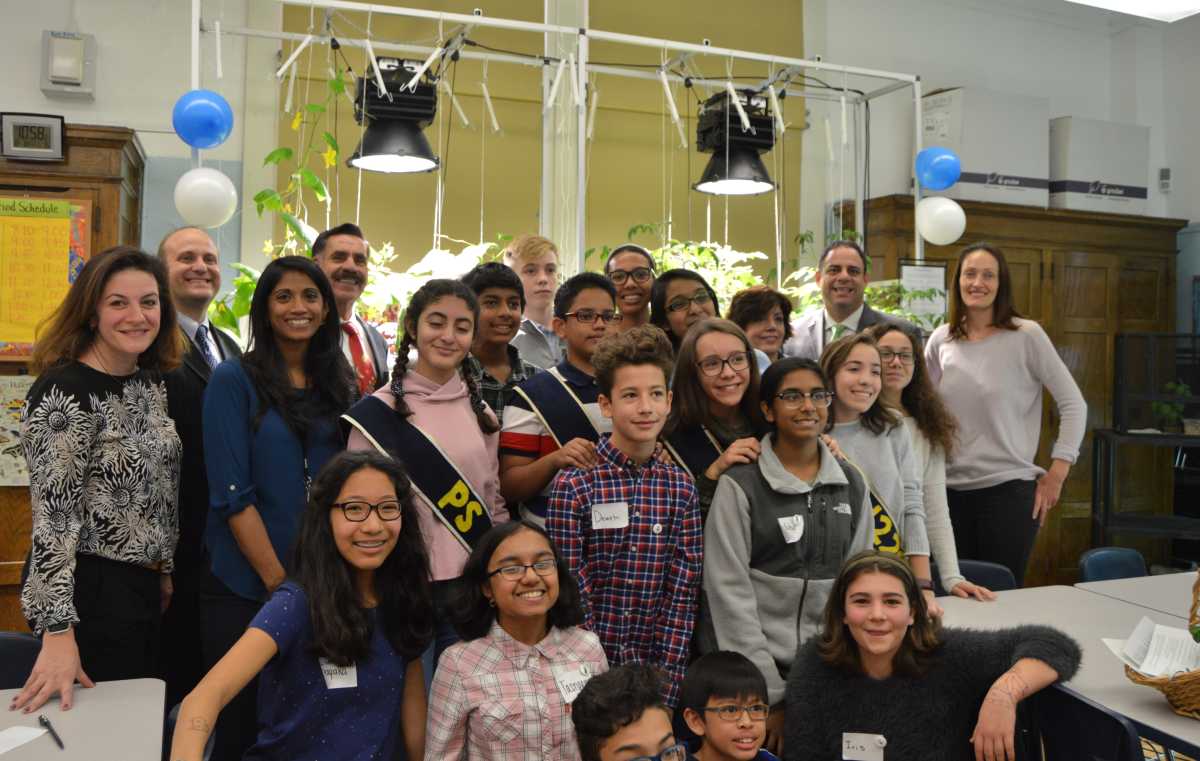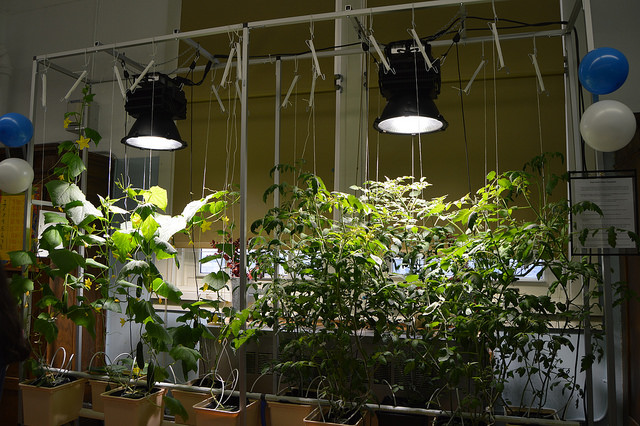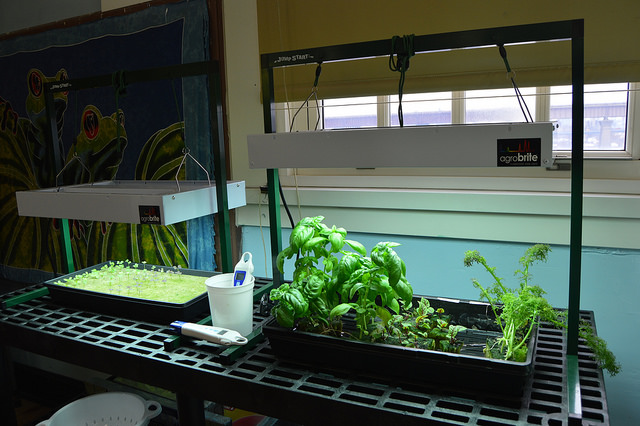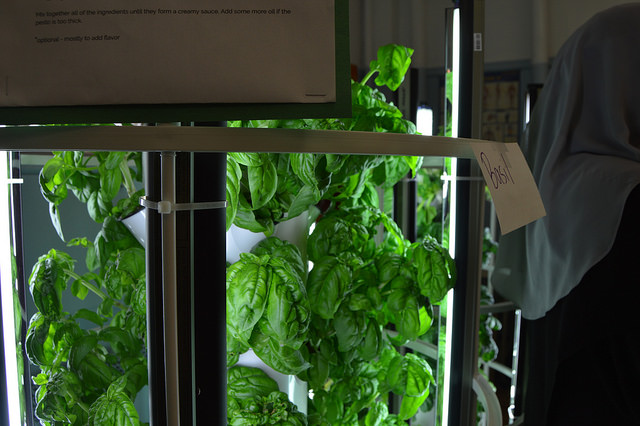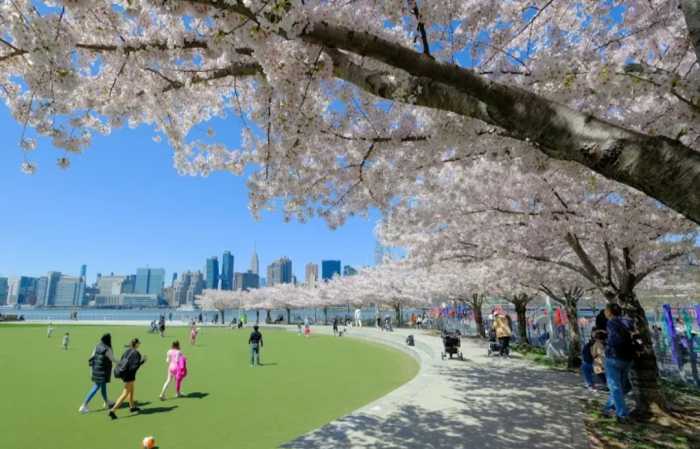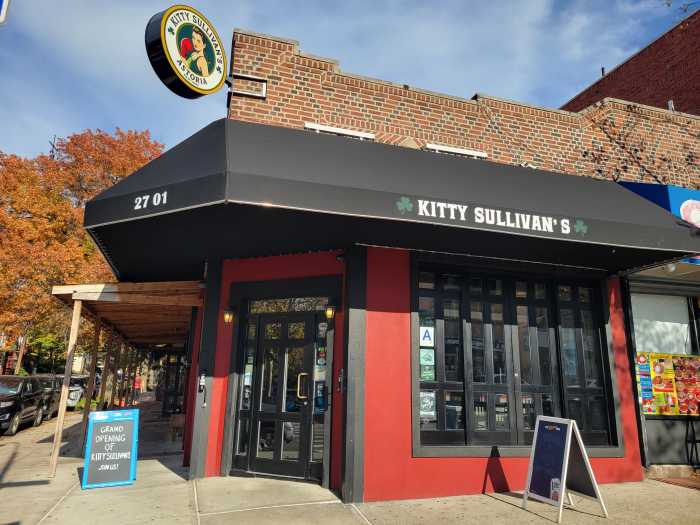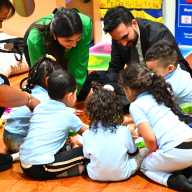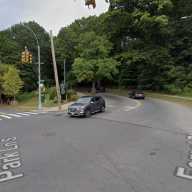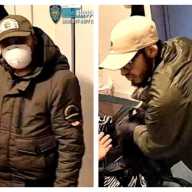Students at Astoria‘s P.S. 122 will grow their own vegetables in class with the help of two hydroponic science labs that will also serve to teach students about agriculture, biology, technology and sustainability.
Councilman Costa Constantinides allocated $160,000 through discretionary funding to help build the labs in an elementary and middle school class at P.S. 122. In a ribbon-cutting ceremony on Dec. 8, the classroom labs, constructed by New York Sun Works, were unveiled.
“We are proud to kick off our Science 2050 Budget Initiative with this opening,” Constantinides said in a statement. “With these innovative learning spaces, children have the opportunity to interact with plants, study the biology of how they grow, and receive meaningful lessons in ecology and agriculture. These types of multifaceted science learning experiences will give students academic benefits in a variety of subject matters.”
New York Sun Works began in 2004 as an initiative called Project Science Barge, according to Director of Development and Events Sidsel Robards. The organization wanted to build a greenhouse on a barge on the Hudson River as a model of a sustainable urban farm.
The initiative inspired them to create The Greenhouse Project, an initiative to re-create what they made on the barge but on school rooftops. The first school chosen for the initiative was P.S. 333 in Manhattan and now, the organization has constructed 70 labs and developed 721 curriculum lessons throughout New York City and New Jersey.
Staff at New York Sun Works met with science teachers and the principal of P.S. 122 during summer 2017 when they constructed the hydroponic lab and hosted professional development sessions with the teachers, who learned how to operate the lab.
A hydroponic lab allows people to grow plants without using soil. Instead, students will use water mixed with mineral nutrient solutions to grow vegetables and herbs, and each lab is retrofitted to serve specific spaces.
The lab at P.S. 122 includes hydroponic growing systems, a composting station, a germination rack and an integrated pest management station. Plants grown in hydroponic systems use 80 to 90 percent less water than plants using conventional techniques.
This specific greenhouse can grow about 902 pounds of produce a year, including lettuces, herbs, microgreens, cucumbers, tomatoes, peppers, eggplants and squash. Pesticides are not used in this lab, so ladybugs are introduced to protect plants from pests.
In addition to building the lab and teaching educators how to operate them, a teacher will come to each each school and explain how to incorporate the curriculum developed by the nonprofit. Teachers also have access to online videos that explain concepts like hydroponics, horticulture and pest management.
“The P.S. 122 teachers in the science labs report that students living in an urban environment often have little connection to nature and where food comes from,” said P.S. 122 Principal Anna Aprea. “By bringing what is typically outdoors inside the classroom, we hope to connect our students to the greater environment. Ultimately, we hope to build on the natural curiosity of the students to provide an elevated set of skills, a broader perspective on the issues facing our communities, and to foster environmental leadership.”
According to Robards, New York Sun Works also brings in a professional to figure out how to educate the broader community about what students are learning in the lab. Students and teachers have incorporated their teachings into farm stands, harvest festivals, cooking demos and have created initiatives like growing vegetables for senior citizens in the neighborhood.
New York Sun Works also installed hydroponic labs at P.S. 70 in Astoria this summer and will construct labs at P.S. 84 and P.S. 126 in Long Island City in the summer of 2018. Contantinides secured more than $3 million for hydroponic science labs, STEM lab updates, solar panels, technology upgrades and other facilities updates during the last budget cycle.

